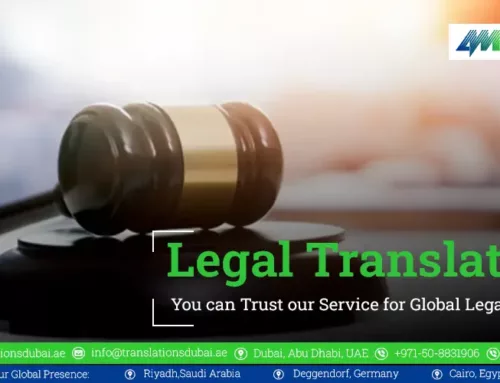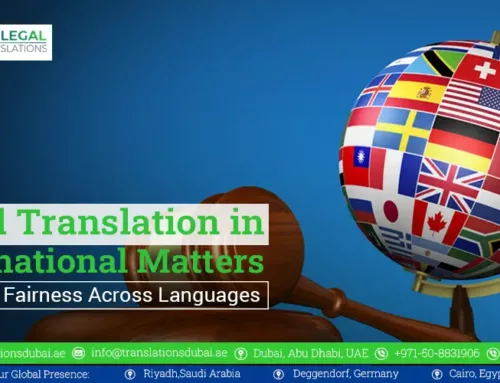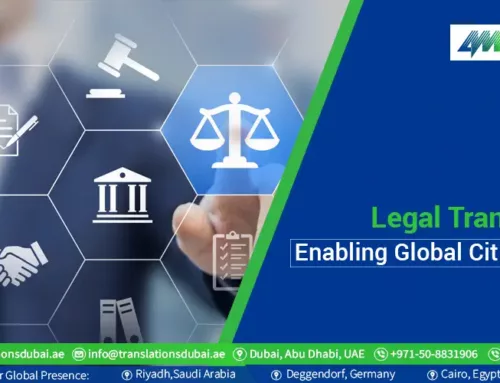Are you looking to expand your language skills into the world of Legal Translation? Look no further! Welcome to 4M Translation‘s blog, where we share our expertise and insights on all things related to translation. As a crucial aspect of the legal profession, accurate and precise translation is essential for ensuring clarity and avoiding costly errors.
In this blog post, we will cover the basics of legal and accurate translation, providing you with expert tips and advice to help you navigate this complex field with confidence. So, let’s dive in and uncover the secrets of translation together!
What is Legal Translation?
Legal translation is the specialized process of translating legal documents, contracts, and other legal materials from one language to another. It involves translating complex legal terminology, ensuring accuracy and precision, and maintaining the legal context and intent of the original document.
Translation requires a deep understanding of both legal systems involved and the specific terminology used in each. It is a meticulous and highly specialized field that requires attention to detail and a strong command of both the source and target languages.
The Importance of Accuracy in Legal Translation
Accuracy is of utmost importance in translation. A tiny mistake or mistranslation might have serious consequences, such as:
- Misunderstandings
- Legal Disputes
- Legal Liabilities
Clients rely on translation services, such as 4M Translation, we provide accurate and precise translations that preserve the integrity and legal context of the original document. With accurate Legal Translation, you can fully understand the terms and obligations outlined in the document, ensuring clarity, If you want to avoid expensive mistakes trust in the expertise of our professional legal translators for accurate and reliable translations.
Basics of Legal Translation
Translation involves translating legal documents from one language to another while preserving the accuracy and legal intent. Key considerations include:
- Legal Terminology: Translators must understand specialized legal terms.
- Accuracy: Precision is essential to prevent legal consequences.
- Cultural and Jurisdictional Differences: Recognize variations between legal systems.
- Confidentiality: Maintain strict confidentiality.
- Certification: Some translations may require notarization.
- Document Variety: Legal documents vary and may have unique requirements.
- Language Competency: Translators must be proficient in both languages.
- Legal Research: Understand specific laws relevant to the document.
- Ethical Considerations: Avoid conflicts, remain impartial, and follow ethical codes.
- Quality Control: Use proofreading and editing for accuracy.
- Continuing Education: Stay updated on legal changes.
- Specialization: Some translators focus on specific legal areas.
At 4M Translation, we specialize in providing legal and accurate translations, ensuring that the integrity and legal context of the original document are preserved. With our expertise, you can navigate the complexities of these basics of translation with confidence. Trust us, we deliver precise and clear translations every time.
Types of Legal Documents Requiring Translation
Translation encompasses a wide range of documents that require translation from one language to another. Typical legal document categories that frequently need translation include the following:
- Contracts
- Court Documents
- Immigration Papers
- Patents
- Wills
- Legal Agreements
Each of these documents contains specialized legal terminology and language that must be accurately translated to ensure clarity and legal compliance. Legal and accurate translation services, like 4M Translation, we are well-equipped to handle the complexities of these documents and provide accurate translations that meet the specific needs of clients. Trust in our expertise to handle any type of legal document requiring translation with precision and professionalism.
Challenges in Translation:
1. Confidentiality and Privacy Concerns:
Confidentiality and privacy are paramount in the field of translation. When working with sensitive legal documents, it is crucial to maintain the highest level of confidentiality to protect the privacy and interests of the parties involved.
2. Ethical Considerations in Translation:
Ethical considerations also play a significant role in translation, as translators must ensure impartiality, accuracy, and professionalism.
At 4M Translation, we understand the importance of safeguarding sensitive information and adhere to strict confidentiality protocols.
Tips for Mastering Translation
Looking to become a master in translation? Consider the following professional advice:
- First, familiarize yourself with the legal systems and terminology of both the source and target languages.
- Stay updated on changes in legal terminology and regulations to ensure accuracy.
- Develop a strong command of both languages to accurately convey legal concepts. Utilize glossaries and specialized resources to aid in translation.
- Finally, consider partnering with a reputable translation service, like 4M Translation, to receive guidance, feedback, and support on your translation journey.
Read More: Legal Translation in Multilingual Contracts: Pitfalls and Strategies






